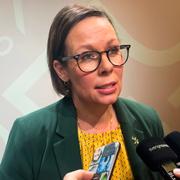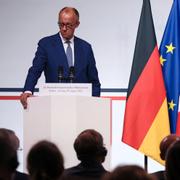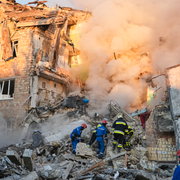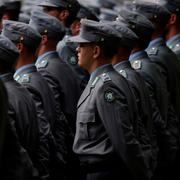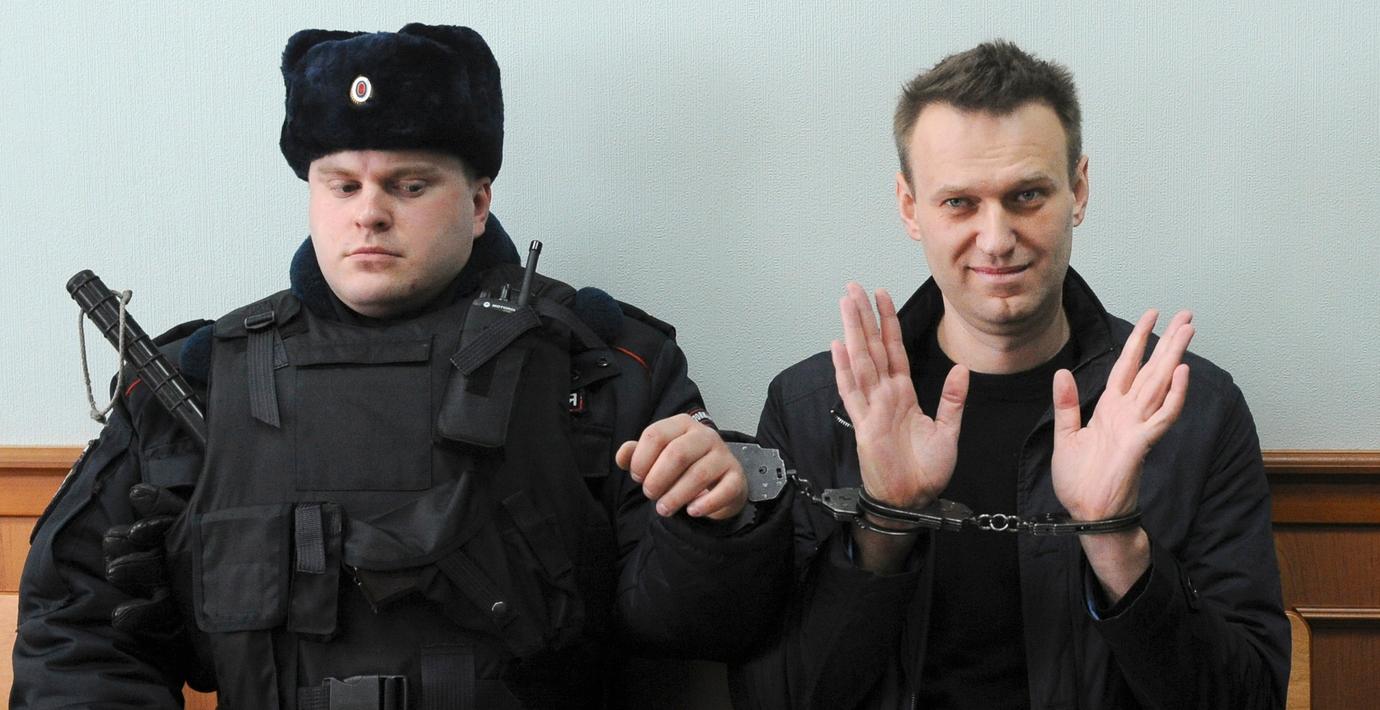
Navalnyj: ”Ryssar, gå ut och protestera mot kriget”
Den ryske, fängslade oppositionskritikern Aleksej Navalnyj uppmanar sina landsmän till dagliga protester mot kriget i Ukraina. Det skriver hans talesperson på Twitter.
”Aleksej Navalnyj manar folket att gå ut och protestera mot kriget varje veckodag klockan 19 och varje helgdag klockan 14. På torgen i era städer, var ni än är”, skriver talespersonen Kira Yarmush på Twitter.
Alexei Navalny
Wikipedia (en)
Alexei Anatolievich Navalny (Russian: Алексей Анатольевич Навальный, IPA: [ɐlʲɪkˈsʲej ɐnɐˈtolʲjɪvʲɪtɕ nɐˈvalʲnɨj]; born 4 June 1976) is a Russian opposition leader, lawyer, and anti-corruption activist. He came to international prominence by organizing anti-government demonstrations and running for office to advocate reforms against corruption in Russia, and against President Vladimir Putin and his government. Putin avoids directly referring to Navalny by name. Navalny was a Russian Opposition Coordination Council member. He is the leader of the Russia of the Future party and the founder of the Anti-Corruption Foundation (FBK).As of 2021, Navalny had more than six million YouTube subscribers. Through his social media channels, he publishes material about corruption in Russia, organizes political demonstrations and promotes his campaigns. In a 2011 radio interview, he described Russia's ruling party, United Russia, as a "party of crooks and thieves," which became a popular epithet. Navalny and the FBK have published investigations detailing alleged corruption by high-ranking Russian officials. In March 2017, Navalny and the FBK released the documentary He Is Not Dimon to You, accusing Dmitry Medvedev, the then prime minister and former president of Russia, of corruption, leading to mass protests across the country.In July 2013, Navalny received a suspended sentence for embezzlement. Despite this, he was allowed to run for mayor in the 2013 Moscow mayoral election and came in second, with 27% of the vote, outperforming expectations but losing to incumbent mayor Sergey Sobyanin, a Putin appointee. In December 2014, Navalny received another suspended sentence for embezzlement. Both of his criminal cases were widely considered to be politically motivated and intended to bar him from running in future elections. The European Court of Human Rights (ECHR) later ruled that the cases violated Navalny's right to a fair trial, but they were never overturned. In December 2016, Navalny launched his presidential campaign for the 2018 presidential election but he was barred by Russia's Central Electoral Commission (CEC) after registering due to his prior criminal conviction and the Supreme Court of Russia rejected his appeal. In 2017, the CEC stated that he would not be eligible to run for president until after 2028.
In 2018, he initiated Smart Voting, a tactical voting strategy intended to consolidate the votes of those who oppose United Russia, in order to deprive them of seats in elections.In August 2020, Navalny was hospitalized in serious condition after he was poisoned with a Novichok nerve agent. He was medically evacuated to Berlin and discharged a month later. Navalny accused Putin of being responsible for his poisoning, and an investigation implicated agents from the Federal Security Service (FSB). The EU, UK and US responded by imposing sanctions on senior Russian officials. On 17 January 2021, he returned to Russia and was detained on accusations of violating parole conditions (imposed as a result of his 2014 conviction) because he had failed to report to Russia's Federal Prison Service (FSIN) twice per month during his illness. Following his arrest and the release of the documentary Putin's Palace which accused Putin of corruption, mass protests across the country were held. On 2 February, his suspended sentence was replaced with a prison sentence, meaning he will spend over two and half years in a corrective labour colony in Vladimir Oblast. A resolution by the ECHR called for his release. While in prison, Navalny and human rights groups have accused Russian authorities of using torture against him. He is recognized by Amnesty International as a prisoner of conscience. In October 2021, he was awarded the Sakharov Prize for his work on human rights.
Direktrapporter
Omni är politiskt obundna och oberoende. Vi strävar efter att ge fler perspektiv på nyheterna. Har du frågor eller synpunkter kring vår rapportering? Kontakta redaktionen
